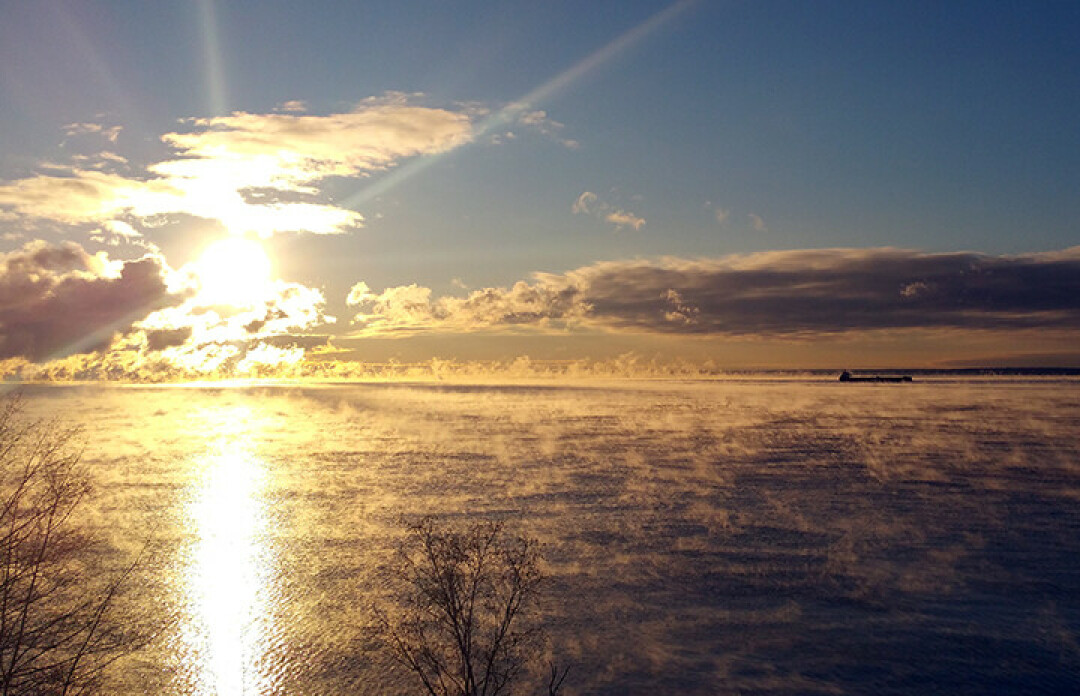News & Articles
Browse all content by date.

Photo by Richard Thomas
It’s 5:45 a.m. Time to wake up and begin walking. Going to head down to Canal Park and watch the sunrise. It’s Friday, Sept. 24. The Global Climate Strike. Started in 2018 by Greta Thunberg and the Fridays for Future youth movement.
Last week, I read several articles about a new study reporting on climate anxiety among young people 16-25. Titled “Young People’s Voices on Climate Anxiety, Government Betrayal and Moral Injury: A Global Phenomenon,” this study surveyed 10,000 people from 10 different countries, including the U.S., India, Brazil and Finland. It stated that 45 percent reported that distress over climate change affected their daily life and ability to function. 60% reported feeling very or extremely worried. And 77 percent said they considered the future to be frightening.
In a Mother Jones article, Catherine Hickman, with the University of Bath and Climate Psychology Alliance, and a co-lead author of the study stated, “This study paints a horrific picture of widespread climate anxiety in our children and young people. It suggests that for the first time that high levels of psychological distress in youth is linked to government inaction. Our children’s anxiety is a completely rational reaction given the inadequate responses to climate change they are seeing from governments. What more do governments need to hear to take action?”
Yes, we can begin by asking how our city government in Duluth as well as the county, state and national governments can take more action? But there’s a bigger question. It’s really about more than just the government. It’s about all of us, especially those of us above the age of 21.
Whether you’re an elected official, social worker, parent, teacher, entrepreneur or physician, how do we come together and find a more proactive approach to addressing climate change and helping young people deal with this disabling climate anxiety.
It was because of that study that I woke up early and headed down to Canal Park. Wanted to see the sunrise and think about the young people in my life. Felt I had to join the Global Climate Strike and find some way to support young people in Duluth and around the world.
As a father, uncle and soon-to-be grandfather, had decided there was no other choice but to find ways to reach out and connect with young people in this climate-change world. Wondered what kind of message I wanted to share. Then it became clear. Needed to live with less, learn to listen to young people more, and then be present when they asked for help.
This Friday, and every Friday in the future, I will fast, read books by young people like Greta Thunberg and Daniel Sherrell, and give some of my time and money to different young people’s environmental and climate groups.
For today, I will make a small contribution to the Sunrise Movement.
In Duluth, what are we doing to engage and educate our young people? How confident are they in the city’s leaders to address climate change? What can we do to address the climate anxiety that many of our young people are experiencing?
In his new book Warmth: Coming of Age at the End of Our World, Daniel Sherrell talks about his years working on various climate and environmental projects as well as his personal challenges in facing what he calls the “Problem.” In his late 20s, Sherrell writes about the mental and emotional challenges that he and others face in trying to make sense of this climate crisis. “To live in the Anthropocene is to realize that your attention must be broadened far beyond the bounds of your individual circumstance – expanded to encompass people, species, objects, and eras with which you are utterly unfamiliar and inextricably bound,” stated Sherrell.
Take a moment and think about all the young people who you come into contact with in your daily lives. How many of them may be experiencing the climate anxiety that was discussed in that study? Who among them may be worried or feeling distress about their lives and their worlds?
These children and young people in Duluth are our future. So, if we are concerned about Duluth’s future and the climate events of tomorrow, what can we do for them today? How do we go about identifying those who may need some counseling, education or general support in helping them navigate through these challenging times? What are the life skills and tools that can enrich and empower our children and young people every day?
“We can cooperate and build community – indeed, we must learn to be able to despite anger and discomfort. That is the real challenge – to hold space for both righteous anger and curious compassion,” wrote Sarah Jaquette Ray, author of A Field Guide To Climate Anxiety.
So, here in Duluth, how do we hold the necessary space for the righteous anger and curious compassion of our young people? How do we cooperate and build community with our city’s youth? Where is that space? And when do we begin? If anyone is interested in joining me to help find that space for the youth in our city, drop me an email at risson1954@gmail.com.
| Tweet |


